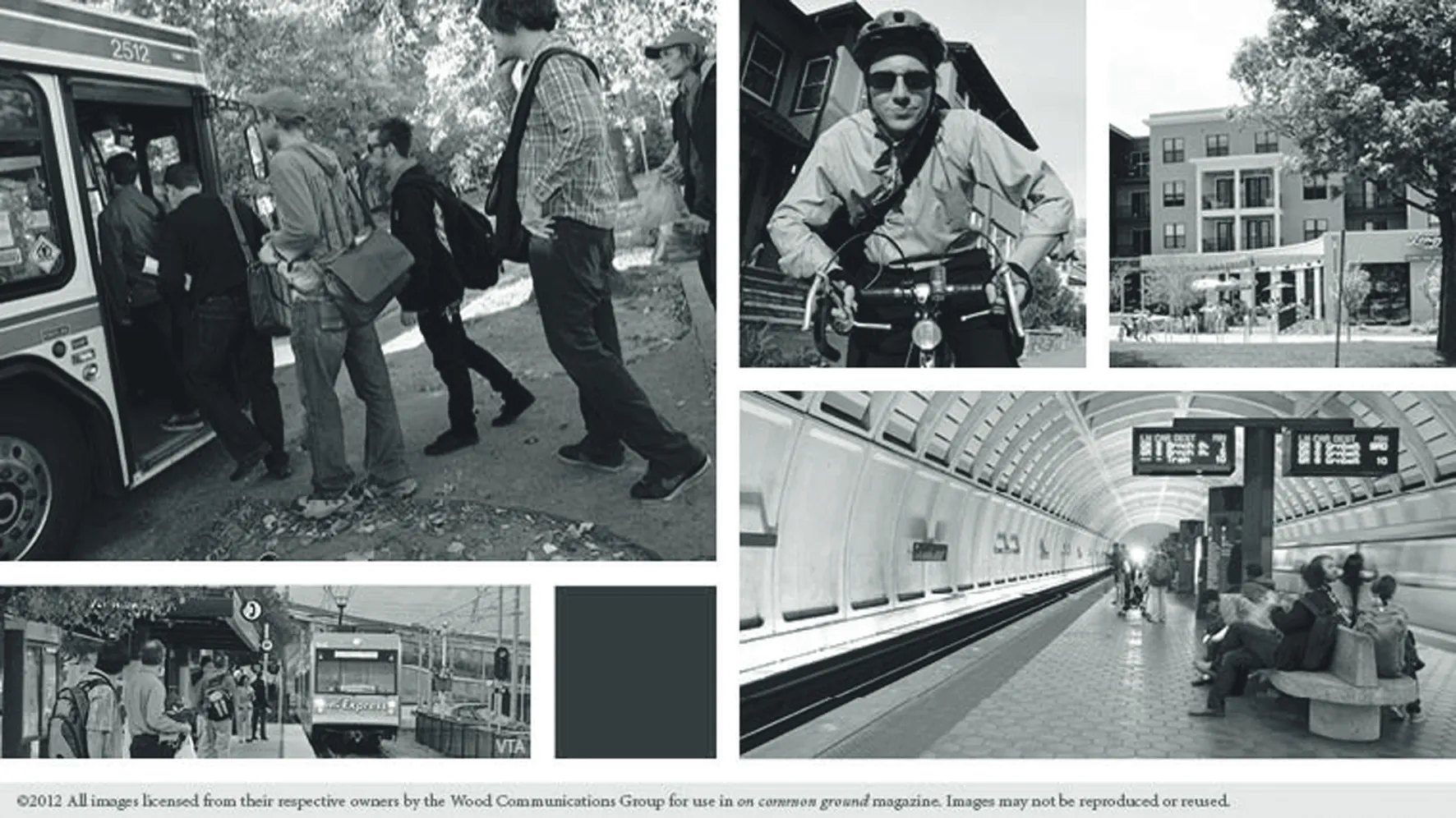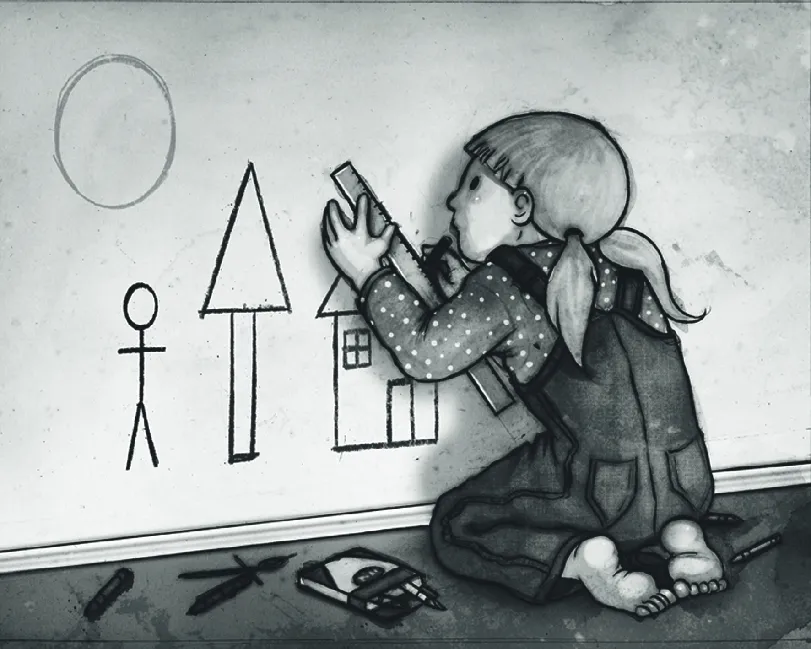The Cheapest Generation
2014-12-21ByDerekThompsonandJordanWeissmann
By Derek Thompson and Jordan Weissmann

In 2009, Ford brought its new supermini, the Fiesta, over from Europe in a brave attempt to attract the attention of young Americans.1. supermini: 超迷你车,小型车;Fiesta: 嘉年华,福特公司旗下品牌。It passed out 100 of the cars to in fluential bloggers for a free six-month test-drive, with just one condition: document your experience online,whether you love the Fiesta or hate it.2. pass out: 分发;document: v.记录。
Young bloggers loved the car. Young drivers? Not so much. After a brief burst of excitement, in which Ford sold more than 90,000 units over 18 months, Fiesta sales plummeted.3. burst: 强烈感情的突然爆发;plummet: 骤跌,暴跌。As of April 2012, they were down 30 percent from 2011.
Don’t blame Ford. The company is trying to solve a puzzle that’s bewildering every automaker in America: How do you sell cars to Millennials (aka Generation Y)?4. bewilder: 使迷惑,使糊涂;Millennial:“千禧一代”,指1984年至1995年间出生的人,他们差不多与电脑同时诞生,在互联网的陪伴下长大;Generation Y: 美国人把1980年到1995年间出生的人称作“Y一代”。The fact is, today’s young people simply don’t drive like their predecessors5. predecessor: 前辈,前任。did. In 2010, adults between the ages of 21 and 34 bought just 27 percent of all new vehicles sold in America,down from the peak of 38 percent in 1985. Miles driven are down,too. Even the proportion6. proportion: 比例。of teenagers with a license fell, by 28 percent, between 1998 and 2008.
每个年代的人都会受到成长时期经济、社会和文化等因素的影响,并会形成不同的价值观、生活态度和行为方式。“千禧一代”几乎与电脑同时诞生,他们的成长伴随着信息化社会的发展,如今他们已不再是以自我为中心、慵懒叛逆、个性张扬的小孩子了,而是到了“而立”之年,面对着买房买车,结婚生子的生活现实。然而,在全球性经济衰退的背景下,他们在物质生活上有着不同于父辈的独特选择,而这也将给社会发展带来一定的影响。
What if Millennials’ aversion to car-buying isn’t a temporary side effect of the recession, but part of a permanent generational shift in tastes and spending habits?7. 如果“千禧一代”厌恶买车并非源于经济衰退带来的暂时的副作用,而是一代人品味和消费习惯永久性改变的一部分,那将会怎样呢?aversion: 厌恶,憎恶;side effect: 副作用。It’s a question that applies not only to cars, but to several other traditional categories of big spending—most notably, housing.8. category: 种类,分类;notably: 显著地,尤其。And its answer has large implications for the future shape of the economy—and for the speed of recovery.9. implication: 可能的影响(或结果);recovery: 恢复,(经济)复苏。
Needless to say, the Great Recession is responsible for some of the decline.10. Great Recession: 经济大衰退,指2007年8月9日开始浮现的金融危机引发的经济衰退,12月开始全球性经济大衰退;decline: 减少,衰退。But it’s highly possible that a perfect storm of economic and demographic factors—from high gas prices, to reurbanization, to stagnating wages, to new technologies enabling a different kind of consumption—has fundamentally changed the game for Millennials.11. 但是极有可能的情况是一系列经济和人口因素的冲击——包括高油价、再城市化、工资停滞和催生全新消费方式的新技术——这已从根本上改变了“千禧一代”的生活方式。The largest generation in American history might never spend as lavishly12. lavishly: 过分慷慨地,奢华地。as its parents did—nor on the same things. Since the end of World War II, new cars and suburban houses have powered the world’s largest economy and propelled our most impressive recoveries.13. suburban: 近郊的,城郊的;power: v.给……提供动力;propel: 推动,驱使;impressive: 激动人心的,给人以深刻印象的。Millennials may have lost interest in both.
The emergence of the “sharing economy”—services that use the Web to let companies and families share otherwise idle goods—is headlined by Zipcar, but it also involves companies such as Airbnb,a shared marketplace for bedrooms and other accommodations for travelers; and thredUP, a site where parents can buy and sell kids’used clothing.14.“分享经济”的出现——利用互联网使公司和家庭能够分享闲置商品的服务——其主角就是Zipcar, 同时也有其他公司,如Airbnb,为旅行者提供卧室和其他食宿服务的共享市场;还有thred-UP,一家供父母买卖孩子旧衣服的场所。headline: 使成为注意中心,把……作为主角;Zipcar: 美国网上租车公司以“汽车共享”为理念。

Millennials, of course, are sharing more than transportation: they’re also sharing living quarters, albeit begrudgingly, and with less gee-whiz technology involved.15. living quarter: 住处,住房;albeit: 虽然,即使;begrudgingly: 不满地;有怨言地;geewhiz: 惊人的。According to Harvard University’s Joint Center for Housing Studies, between 2006 and 2011, the homeownership rate among adults younger than 35 fell by 12 percent, and nearly 2 million more of them—the equivalent of Houston’s population—were living with their parents, as a result of the recession.16. homeownership rate: 住房自有率;equivalent:等值物。The ownership society has been overrun by renters and squatters.17. overrun: 席卷,侵占;squatter: 擅自占用者。
In some respects, Millennials’ residential aspirations appear to be changing just as significantly as their driving habits—indeed, the two may be related.18. in some respects: 从某种意义上说;aspiration:志向,抱负;significantly: 显著地,巨大地。The old cul-de-sacs of Revolutionary Road and Desperate Housewives have fallen out of favor with Generation Y.19. cul-de-sac:〈法〉死巷,死路; Revolutionary Road:电影《革命之路》,是由莱昂纳多·迪卡普里奥和凯特·温斯莱特主演的影片,讲述20世纪50年代美国中产阶级的生活;Desperate Housewives: 美剧《绝望的主妇》,讲述一个小镇上四个中产阶级家庭主妇的生活;fall out of favor: 失宠。Rising instead are both city centers and what some developers call “urban light”—denser suburbs that revolve around a walkable town center.20. denser: (人口)更加密集的,后文density意思是“密集,密度”;walkable: 可以走到的,适于步行的。“People are very eager to create a life that blends the best features of the American suburb—schools still being the primary,although not the only, draw—and urbanity,”21. primary: 最重要的,首要的;draw: 引人注目的事物;urbanity: 都市风格,城市性;consultancy: 咨询公司。says Adam Ducker, a managing director at the real-estate consultancy RCLCO.
Wholly apart from their urban sensibility, townhouses and other small houses are more affordable, all else equal, and developers know that to attract Millennials, they need to cater to tattered bank accounts.22. sensibility: 敏感,善感;cater to: 迎合,投合;tattered: 破旧的,此处指银行账户存款不充足。“The types of properties young people are buying now are different from what [that age group] bought five years ago,” said Shannon Williams King,the vice chair of strategic planning at the National Association of Realtors. “They are within walking distance of shopping centers. These buyers want bike shares and Zipcar. They like feeling connected23. connected: 有联系的,有关系的。.” In short, the future of the house might look a lot like the future of the car: smaller, cheaper, built for a new economy.
If the Millennials are not quite a post-driving and postowning generation, they’ll almost certainly be a less-driving and less-owning generation. That could mean some tough24. tough: 艰难的,困难的。adjustments for the economy over the next several years. In recent decades, the housing industry has usually led us out of recession. When the Federal Reserve lowered interest rates in the midst of the sharp recession of the early 1980s, for instance, a construction boom helped fuel the “Reagan Recovery.”25. 例如,在20世纪80年代初,经济严重衰退的情况下,联邦储备委员会降低利息率,由此引发的一场建设热潮带来了“里根经济复苏”。With the housing market moribund26. moribund: 垂死的,停滞不前的。, the Federal Reserve has lost a key means of in fluencing the economy with lower interest rates. The serviceled recovery we’ve gotten instead is not nearly as robust27. robust: 强劲的,强健的。.
Smaller houses built in dense, mixed-use neighborhoods generally take longer to build than McMansions28. McMansion: 巨无霸豪宅,一种大型现代房屋,犹如大批量建造,缺乏个性,和当地原有建筑有区别。on green- field sites. And of course, because they require fewer fixtures and furnishings, their construction spurs less economic activity.29. fixture: 不可移动的定位安装家具;spur: 推动,激励。
Yet in the long run, there’s good cause for optimism as well. Nobody is suggesting that the American consumer has bought her last house or car—only that houses and cars may lose some of the outsize30. outsize: 特大的。importance they’ve had to the economy for the past 10 or 20 years or more. “There are a lot of countries, Germany for example, where homeownership rates are a lot lower than ours, and they have healthy incomes,” said Robert Lerman, an Urban Institute fellow in labor and social policy. Simple arithmetic says that if Americans spend less money on cars and houses, they’ll have more money left over to spend or save—and not all of that will go to electronic gadgets.31. arithmetic: 算数,算法;gadget:小装置,小玩意。
Education is the “obvious outlet32. outlet: 出口,出路。for the money Millennials can spend,”Perry Wong, the director of research at the Milken Institute, told us, noting that if young people invest less in physical things like houses, they’ll have more to invest in themselves. “In the past, housing was the main vehicle33. vehicle: 载体,媒介。for investment, but education is also a vehicle.” In an ideas economy, up-to-date knowledge could be a more nimble34. nimble: 机智的,敏捷的。and valuable asset than a house.
What’s more, the shift away from traditional suburbs toward denser,urban-light living could have major economic-growth implications on its own. Economic research shows that doubling a community’s population density tends to increase productivity by anywhere between 6 percent and 28 percent. Economists have found that more than half of the variation in output35. output: 产量,作品。per worker across U.S. states can be explained by density. Our wealth, after all, is determined not only by our own skills and talents, but by our ability to access the ideas of those around us; there’s a lot to be gained by increasing the odds that smart people might bump against each other.36odds: (某事发生的)机会,可能性;bump: 碰,撞。Ultimately, if the Millennial generation pushes our society toward more sharing and closer living, it may do more than simply change America’s consumption culture; it may put America on firmer economic footing for decades to come.

